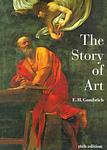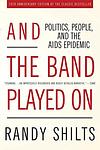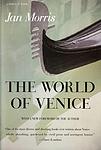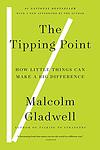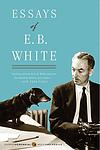The Greatest "Nonfiction" Books Since 1950
Click to learn how this list is calculated.
This list represents a comprehensive and trusted collection of the greatest books. Developed through a specialized algorithm, it brings together 284 'best of' book lists to form a definitive guide to the world's most acclaimed books. For those interested in how these books are chosen, additional details can be found on the rankings page.
Genres
Countries
Date Range
Reading Statistics
Click the button below to see how many of these books you've read!
Download
If you're interested in downloading this list as a CSV file for use in a spreadsheet application, you can easily do so by clicking the button below. Please note that to ensure a manageable file size and faster download, the CSV will include details for only the first 500 books.
Download-
51. The Man Who Mistook His Wife for a Hat by Oliver Sacks
The book is a collection of clinical tales about patients suffering from a variety of neurological disorders. The author, a neurologist, shares his experiences with these patients, whose conditions range from common ailments like amnesia and aphasia, to rare disorders like visual agnosia and Tourette's Syndrome. The stories are both compassionate and insightful, revealing the complexities of the human brain and the resilience of the human spirit, even in the face of debilitating illness.
-
52. Mythologies by Roland Barthes
This book is a collection of essays that explore the layers of cultural and societal meanings that are imbued in everyday objects, activities, and phenomena. The author decodes the symbols and signs embedded in things as varied as wrestling, soap detergents, toys, and even the face of Greta Garbo. The book is a pioneering exploration of semiotics, the study of signs and symbols, and it challenges readers to question and understand the cultural connotations and ideologies that are presented as natural or given in our everyday lives.
-
53. Ways Of Seeing by John Berger
This book is a seminal work of art criticism that challenges traditional Western cultural aesthetics by examining the ways in which we culturally learn to view art, particularly the impact of modern mass-reproduction on our experience of seeing. The author argues that the context, or "gaze," through which we perceive art significantly affects its meaning and our appreciation of it. The book also explores the portrayal of women in art and society, the relationship between art and ownership, and the connection between historical context and visual perception. It is a provocative critique that encourages readers to reconsider the role of visual imagery in our everyday lives and the power structures inherent in the act of looking.
-
54. A Heartbreaking Work of Staggering Genius by Dave Eggers
A Heartbreaking Work of Staggering Genius is a memoir that follows the life of a young man who, after the cancer-related deaths of his parents, is tasked with raising his 8-year-old brother. The book explores themes of death, family, and the responsibilities that come with sudden adulthood. It is a testament to the strength of the human spirit, showcasing the protagonist's journey through grief, financial struggles, and the challenge of raising a child, all while trying to navigate his own young adulthood.
-
55. The Liberal Imagination by Lionel Trilling
"The Liberal Imagination" is a collection of essays that scrutinize and challenge the ideas, politics, and cultural norms of liberal society. The author argues that liberalism often simplifies complex issues and overlooks the inherent contradictions and conflicts in human life. Using literature as a tool, he delves into the nuances of these issues and encourages readers to engage in critical thinking and self-examination. The book is a profound exploration of the strengths and weaknesses of liberal thought and its impact on society.
-
56. The Rings of Saturn by W. G. Sebald
"The Rings of Saturn" is a richly detailed travelogue that follows the narrator's journey along the coast of Suffolk, England. The narrative weaves together history, literature, and personal anecdotes, exploring topics as diverse as the decline of the herring industry, the horrors of colonialism in the Congo, and the life of philosopher Sir Thomas Browne. The book is characterized by its melancholic tone, its digressive style, and its meditative reflections on memory, time, and decay.
-
57. The Guns of August by Barbara Tuchman
"The Guns of August" is a detailed and engaging account of the first month of World War I. The book explores the events leading up to the war, the political and military strategies of the various countries involved, and the critical decisions that shaped the course of the conflict. It presents a vivid picture of the war's early stages, highlighting the miscalculations, miscommunications, and misunderstandings that led to one of the most devastating wars in history.
-
58. Wild Swans: Three Daughters of China by Jung Chang
This book is a biographical account of three generations of women in China, spanning the years 1909 to 1991. The narrative follows the lives of the author's grandmother, a warlord's concubine; her mother, a high-ranking official in the Communist Party; and the author herself, who grew up during the Cultural Revolution before moving to the West. The book presents a vivid portrayal of the political and social changes in China during the 20th century, as seen through the eyes of these three women.
-
59. Words by Jean Paul Sartre
This book is a memoir that explores the author's early life and development as an intellectual. He reflects on his childhood experiences in a non-linear narrative, detailing his relationship with his mother and grandfather, his early education, and his evolving understanding of language and literature. The author also delves into his philosophical ideas, examining the concept of existentialism and the role of the individual in society. The book serves as a profound exploration of the power of words and the impact of childhood experiences on adult life.
-
60. The Story of Art by E. H. Gombrich
"The Story of Art" is a comprehensive guide to the history of art, covering a vast span of time from prehistoric art to contemporary movements. The book provides insights into the cultural, historical, and social contexts that have influenced the creation of art throughout various periods. It offers detailed analysis of major works and styles, and discusses the techniques used by artists from different eras. It is not only an exploration of the evolution of art but also an attempt to understand the motivations and inspirations of the artists behind the works.
-
61. Tristes Tropiques by Claude Lévi-Strauss
"Tristes Tropiques" is a blend of autobiography, travel literature, and anthropology by a renowned scholar. The book is a recounting of the author's travels and anthropological work, primarily in Brazil, in the 1930s. It provides a critical and philosophical reflection on his experiences and observations, offering insights into indigenous tribes like the Nambikwara and Tupi-Kawahib, and exploring themes of cultural change, the nature of anthropology, and the author's own disillusionment with Western civilization.
-
62. The Labyrinth of Solitude by Octavio Paz
This book is a profound and vivid exploration of Mexico's character, culture, and identity. The author delves into Mexico's history, politics, and psyche, examining the country's deep solitude and its impact on the national character. The book provides a comprehensive analysis of Mexican society, its myths, symbols, and rituals, offering a deep understanding of the Mexican people's unique way of perceiving the world. It also discusses the influence of the United States on Mexico and the complex relationship between the two countries.
-
63. Guns, Germs, and Steel by Jared Diamond
The book is a comprehensive exploration of the different trajectories of human societies throughout history. It argues that environmental factors, rather than racial or cultural differences, are the primary reason why some societies developed more advanced technology and political systems. The author uses a multidisciplinary approach, drawing from fields such as geography, evolutionary biology, and linguistics, to support his thesis. The book covers a wide range of topics, including the domestication of plants and animals, the invention of writing, and the spread of diseases.
-
64. The Executioner's Song by Norman Mailer
"The Executioner's Song" is a true crime novel that tells the story of Gary Gilmore, a man who, after being released from prison, embarks on a murder spree in Utah that leads to his capture and execution. The book delves into Gilmore's troubled life and psyche, his relationships, and the legal and moral debates surrounding his death sentence. It provides an in-depth look at the American criminal justice system and capital punishment.
-
65. Desert Solitaire by Edward Abbey
Desert Solitaire is a collection of vignettes about life in the wilderness that reflects on the fierce beauty of the desert, the cruel indifference of nature, and the reckless destruction of the American West. The book, based on the author's experiences as a park ranger in Utah, explores the spiritual and philosophical dimensions of the desert environment, critiquing the commercialization and urbanization of the wild, and underscoring the importance of preserving natural landscapes.
-
66. The Great War and Modern Memory by Paul Fussell
"The Great War and Modern Memory" is a critical analysis of the impact of World War I on the English society and culture. The author explores the war's influence on literature, language, and symbolism, arguing that the horrific experiences of the war drastically altered public perception and understanding of conflict, honor, and heroism. The book combines literary criticism, history, and social commentary to provide a comprehensive examination of the war's lasting effects on the collective memory of the English-speaking world.
-
67. And the Band Played On by Randy Shilts
This book is a comprehensive chronicle of the emergence of the AIDS epidemic in the United States in the 1980s. It explores how the disease was initially ignored by many health professionals and politicians, leading to its spread and the deaths of thousands of people. The book also examines the impact of the disease on the gay community and the role of various institutions, including the medical community, the media, and the government, in responding to the crisis. It's a powerful critique of the indifference and negligence that allowed the disease to become a global pandemic.
-
68. The Great Railway Bazaar by Paul Theroux
"The Great Railway Bazaar" is a travelogue in which the author embarks on a four-month journey by train from London through Europe, the Middle East, the Indian subcontinent, Southeast Asia, and Siberia, and then back to Europe. The book is a vivid and insightful account of the people, cultures, landscapes, and experiences encountered during the journey, painting a unique picture of the world as seen from the perspective of a train window. The author's sharp observations and engaging storytelling make this journey as much an inner exploration as a geographical one.
-
69. A Theory of Justice by John Rawls
This book presents a seminal work in modern political philosophy, where the author proposes a model of justice that, despite being egalitarian, respects individual rights. The author's "veil of ignorance" thought experiment, which suggests designing society from an original position where no one knows their future place in society, has been particularly influential. The author argues that this would lead to a system where each individual is assured basic liberties and socio-economic inequalities are only allowed if they benefit the least advantaged members of society.
-
70. Gödel, Escher, Bach by Douglas Hofstadter
The book explores concepts of formal systems, recursion, self-reference, and infinity through the interdisciplinary lens of mathematics, art, and music. The narrative intertwines biographical sketches of the titular figures - a mathematician, an artist, and a composer - with dialogues and discussions to illustrate complex ideas. The author uses these figures as metaphors to delve into the nature of human cognition and consciousness, suggesting that our minds are essentially self-referential systems akin to the works of Gödel, Escher, and Bach.
-
71. Venice by Jan Morris
This book provides an in-depth exploration of the city of Venice, delving into its history, culture, architecture, and its unique geographical attributes. It paints a vivid picture of the city in its glory days, as well as its present state, with all its beauty and decay. The author's personal experiences and observations are woven into the narrative, offering readers an intimate and engaging tour of the city. The book also discusses the city's influence on art, literature, and music, and its enduring allure for travelers from around the world.
-
72. The Constitution of Liberty by Friedrich von Hayek
This book is a comprehensive analysis of the concept of liberty, emphasizing the importance of individual freedom in political, societal, and economic contexts. The author argues that a free society, where individuals can act according to their own decisions and plans, is the most effective system for human progress. He also explores the relationship between law and liberty, the role of government in a free society, and the challenges to liberty posed by concepts such as social and economic justice.
-
73. The Tipping Point by Malcolm Gladwell
This book explores the concept of "tipping points," or the specific moment when an idea, trend, or social behavior crosses a threshold and spreads like wildfire. It delves into the science behind epidemics, both in terms of diseases and ideas, and dissects the factors that can cause a sudden shift in public consciousness. The author uses various case studies, from the sudden popularity of certain shoes to the decrease in New York City's crime rate, to illustrate these concepts.
-
74. Essays of E. B. White by E. B. White
This book is a collection of essays written by a renowned American writer, offering a wide range of topics including nature, politics, literature, and personal experiences. The author's distinct style of writing, characterized by wit, humor, and profound insight, is evident throughout the book. The essays serve as a reflection of the author's thoughts and observations about life, society, and the world, providing readers with an intimate look into his mind and perspective.
-
75. Promise at Dawn by Romain Gary
"Promise at Dawn" is a semi-autobiographical novel that explores the life of a young man growing up in Eastern Europe, and later in France, under the shadow of his ambitious and eccentric mother. The protagonist's journey takes him through various phases of his life from his childhood, through his experiences as a pilot in World War II, to his adult life as a diplomat and a writer. The story is a tribute to the protagonist's mother, who instilled in him the values of courage, resilience, and the pursuit of grandeur, even in the face of adversity.
Reading Statistics
Click the button below to see how many of these books you've read!
Download
If you're interested in downloading this list as a CSV file for use in a spreadsheet application, you can easily do so by clicking the button below. Please note that to ensure a manageable file size and faster download, the CSV will include details for only the first 500 books.
Download








